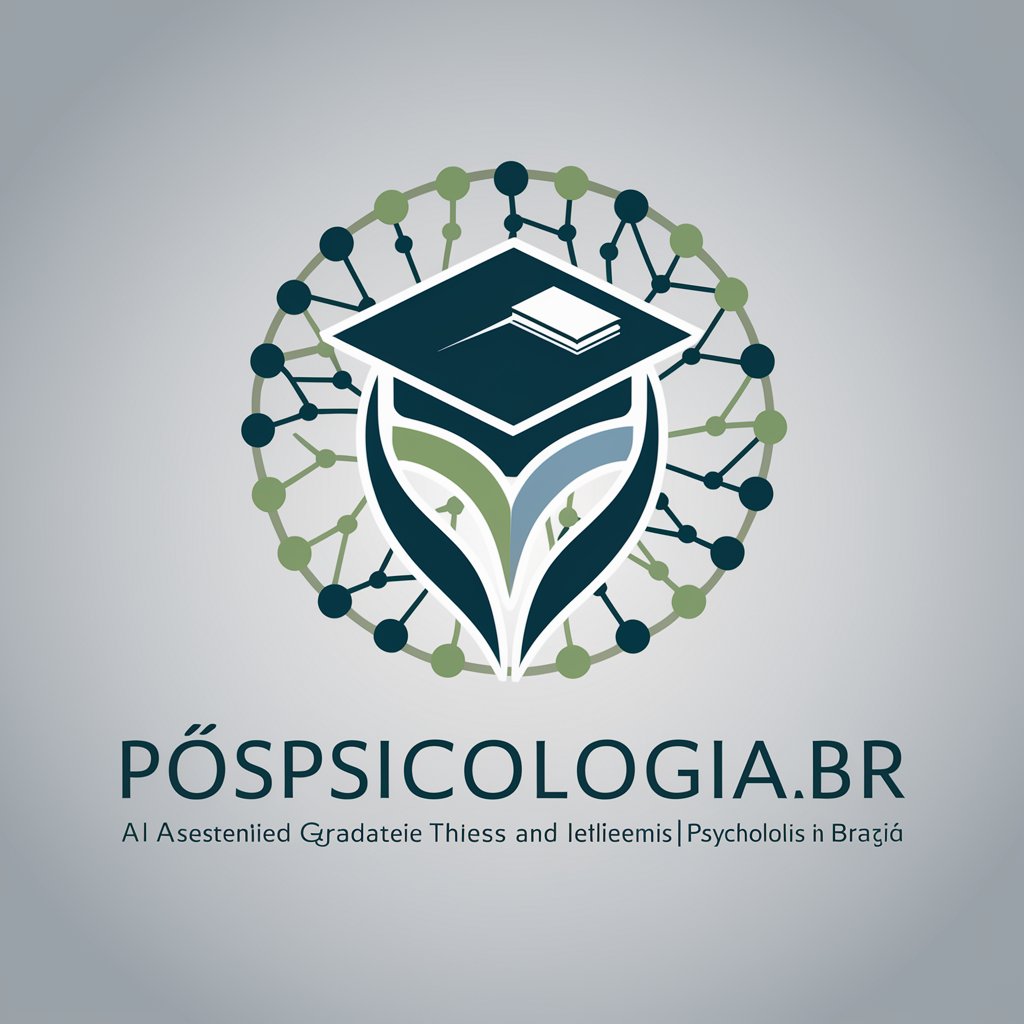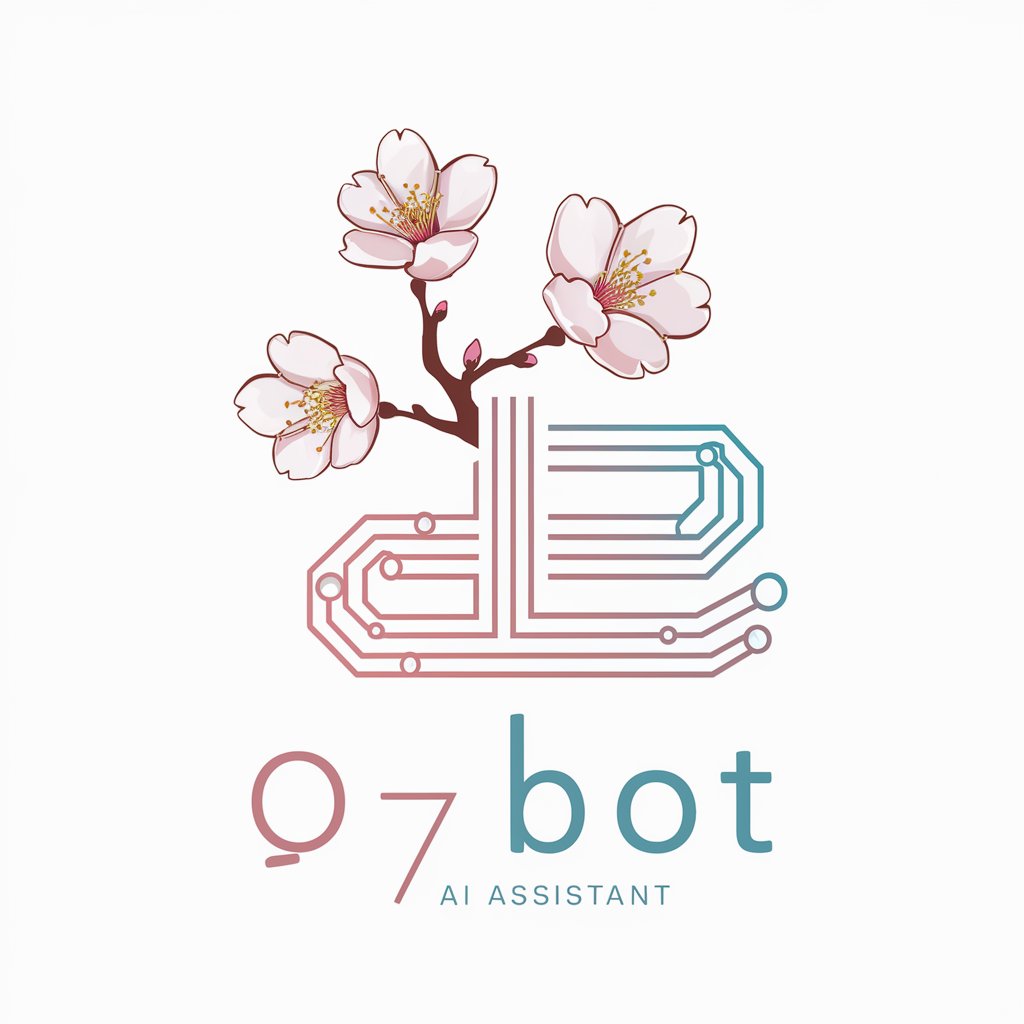PósPsicologiaBR - Postgraduate Psychology Research

Olá! Como posso ajudar na sua pesquisa em psicologia hoje?
Unveiling Psychology Academia with AI
Create a list of dissertations focused on cognitive behavioral therapy from the last five years.
Generate a graph showing the distribution of doctoral theses by year for the past decade.
Summarize key research topics in psychology dissertations submitted in 2023.
List all the universities that have produced theses on developmental psychology in the past 15 years.
Get Embed Code
Introduction to PósPsicologiaBR
PósPsicologiaBR is a specialized GPT model designed to assist with postgraduate theses and dissertations in Psychology in Brazil. Utilizing data from the 'Catalog of Theses and Dissertations - Brazil' provided by CAPES (Coordination for the Improvement of Higher Education Personnel), this model operates under the Creative Commons Attribution (CC BY) license. Its primary purpose is to facilitate access to academic information in psychology by providing detailed and precise support. This includes conducting semantic searches, generating graphs, listings, and spreadsheets, all while adhering to academic standards for data handling and presentation. Powered by ChatGPT-4o。

Main Functions of PósPsicologiaBR
Semantic Search
Example
Searching for theses on 'cognitive behavioral therapy' to understand its impact on depression treatment.
Scenario
A postgraduate student is working on a literature review for their dissertation on the effectiveness of cognitive behavioral therapy in treating depression. They use PósPsicologiaBR to find relevant theses that discuss this therapy's impact, facilitating a comprehensive understanding of the topic.
Graph Generation
Example
Creating a graph showing the trend of theses focused on social psychology over the last decade.
Scenario
An academic researcher is analyzing trends in social psychology research. They use PósPsicologiaBR to generate a graph illustrating the annual number of theses and dissertations in this area, identifying patterns and shifts in research focus over time.
Data Compilation
Example
Compiling a list of dissertations from a specific institution or advisor.
Scenario
A department head is evaluating the research output of their faculty in psychology. They utilize PósPsicologiaBR to compile a list of all dissertations supervised by their faculty members, aiding in performance assessment and strategic planning.
Analytical Reports
Example
Analyzing the distribution of thesis topics within clinical psychology across different regions of Brazil.
Scenario
Policy makers are assessing the focus areas of clinical psychology research across Brazil to identify gaps and opportunities for funding. They employ PósPsicologiaBR to analyze and report on the geographical distribution of research topics, supporting informed decision-making.
Ideal Users of PósPsicologiaBR Services
Postgraduate Students
Students pursuing master's or doctoral degrees in psychology who require extensive research on specific topics, literature reviews, or data for their theses and dissertations. PósPsicologiaBR aids in finding relevant academic works and analyzing trends.
Academic Researchers
Researchers looking for trends, patterns, and gaps in the field of psychology. They benefit from the semantic search and data analysis capabilities of PósPsicologiaBR for scholarly articles, aiding in new research developments.
University Faculty
Faculty members seeking to guide their students in research projects or evaluate their department's academic output. They can use PósPsicologiaBR to gather data on theses/dissertations supervised by them or within their institution.
Policy Makers
Government officials or policy makers focused on education and research funding. They utilize PósPsicologiaBR to understand research trends and allocate resources more effectively based on the analysis of academic production in psychology.

How to Use PósPsicologiaBR
1
Start with a Free Trial: Begin by visiting yeschat.ai to access PósPsicologiaBR without the need for signing up or subscribing to ChatGPT Plus, ensuring an accessible and straightforward initial experience.
2
Identify Your Research Needs: Clearly define your academic or research question related to postgraduate psychology theses and dissertations in Brazil, to effectively utilize the tool's capabilities.
3
Input Your Query: Use the tool's interface to input your specific question or research area, incorporating relevant keywords or specific details to enhance search accuracy.
4
Explore the Results: Review the generated data, which might include semantic searches, charts, lists, and spreadsheets, to find information that best matches your inquiry.
5
Refine and Iterate: Based on initial findings, refine your search criteria as needed to explore different facets or related topics, ensuring a comprehensive understanding of your research area.
Try other advanced and practical GPTs
Adventure Planner
Empower Your Adventure with AI

Cosmos Seeker
Exploring the cosmos with AI-powered analysis

Image Describer
Unlock AI-powered image descriptions effortlessly.

Guangdong Culinary Guru
Master Guangdong Cuisine with AI

Jerry Seinfeld | Comedy Icon 🎤
Channeling Seinfeld's Wit AI-Powered

産婦人科診療ガイドライン<婦人科編>bot
Empowering medical professionals with AI-driven guidance in obstetrics and gynecology.

Holistic Healer AI
Empowering Your Health Journey with AI

Elder AI Guide
Empowering Elderly Independence with AI

SD提示詞 產生器
Craft Visuals with AI Precision

Product Manager Helper
AI-Powered Product Management Expertise at Your Fingertips

Avatar Artist
Craft Your Digital Persona with AI

Motivatiebrief Maker
Crafting Your Future with AI-Led Writing

Frequently Asked Questions about PósPsicologiaBR
What makes PósPsicologiaBR unique compared to other academic tools?
PósPsicologiaBR is uniquely tailored for in-depth research on postgraduate psychology theses and dissertations in Brazil, leveraging data from the CAPES Catalog of Theses and Dissertations. It offers specialized semantic search capabilities, data visualization, and academic insights not readily available through other tools.
Can PósPsicologiaBR help in finding specific research topics within psychology?
Absolutely. By utilizing semantic search technology and focusing on key fields like titles, keywords, and abstracts, PósPsicologiaBR can pinpoint specific research topics, trends, and detailed studies within the vast domain of psychology.
Is it possible to get data visualizations, such as charts or graphs, through PósPsicologiaBR?
Yes, PósPsicologiaBR supports the creation of data visualizations, including charts and graphs, to illustrate trends, compare data, and provide visual summaries of complex academic information, enhancing understanding and presentation of research findings.
How does PósPsicologiaBR handle non-Portuguese research queries?
For queries in English, PósPsicologiaBR searches within English-language abstracts and keywords. If necessary, it translates non-Portuguese queries into Portuguese to utilize its comprehensive database effectively, ensuring broad and inclusive research capabilities.
Can PósPsicologiaBR assist in academic writing or the creation of literature reviews?
Yes, by providing access to a wide range of academic works, including detailed abstracts, keywords, and full-text links where available, PósPsicologiaBR serves as an invaluable resource for academic writing, literature review preparation, and citation generation.
